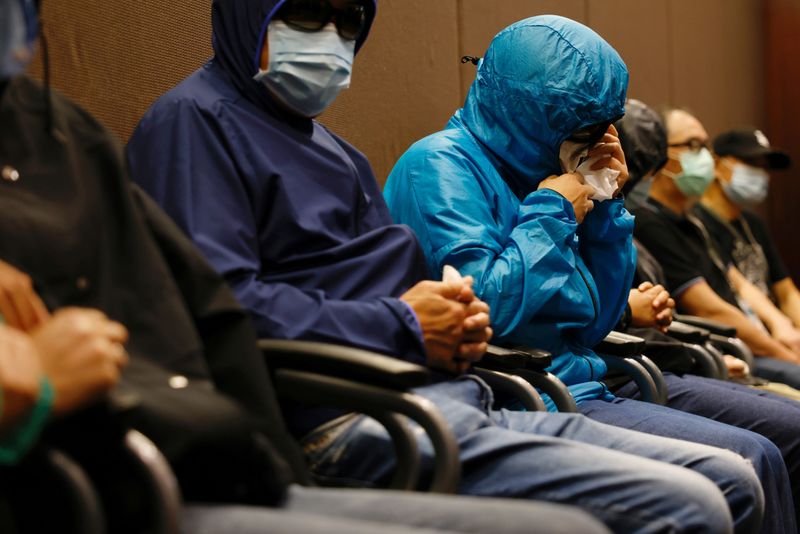By Jessie Pang
HONG KONG (Reuters) - A group of Hong Kong families on Saturday demanded the urgent return of their activist relatives detained last month by mainland Chinese authorities as they tried to flee the city by boat to Taiwan.
Relatives of six of the 12 detained activists donned masks and hats to shield their identities as they made their first public appeal for help and information on their plight, supported by several local pro-democracy politicians.
Some sobbed and wept as they issued several demands, including that those detained be allowed to consult lawyers appointed by the families and not the Chinese government and should be allowed to call their relatives in Hong Kong.
"I can't imagine what's the worst case scenario," said a woman surnamed Li, whose son Li Tsz-yin, 29, is among those being held in a detention centre in the southern city of Shenzhen.
They said they still had no information on the charges faced by their relatives, and the Hong Kong government had given no concrete assistance. A boy aged 16 is the youngest being held.
The Chinese Coast Guard Bureau said in a post on its social media site on Aug. 27 that it had arrested at least 10 people on Aug. 23 after intercepting a boat off the coast of the southern province of Guangdong.
Hong Kong media, citing unidentified sources, said the 12 were headed to Taiwan to apply for political asylum. Their arrests come as local activists and politicians fear a worsening clamp-down across the former British colony as a sweeping new national security law imposed by Beijing in July takes full effect.
Hours before the families' appearance, U.S. Secretary of State Mike Pompeo said that the United States was deeply concerned about the activists, saying they had been denied to access to lawyers and local authorities had not provided any information on their welfare or the charges against them.
Hong Kong Chief Executive Carrie Lam said earlier this week that if they had been arrested for breaking mainland law "then they have to dealt with according to the mainland laws."

